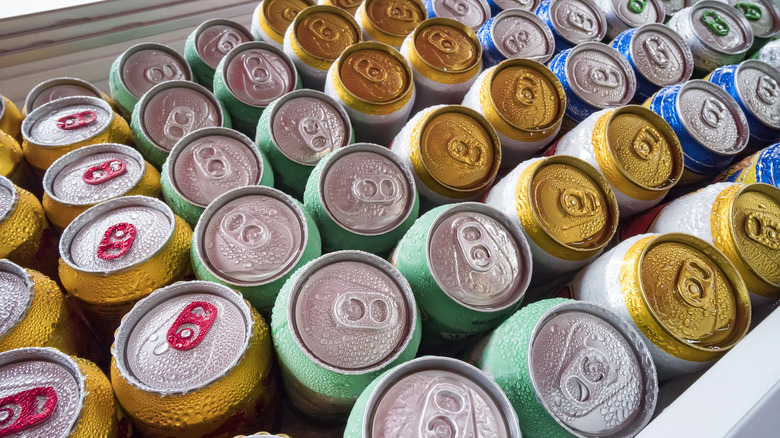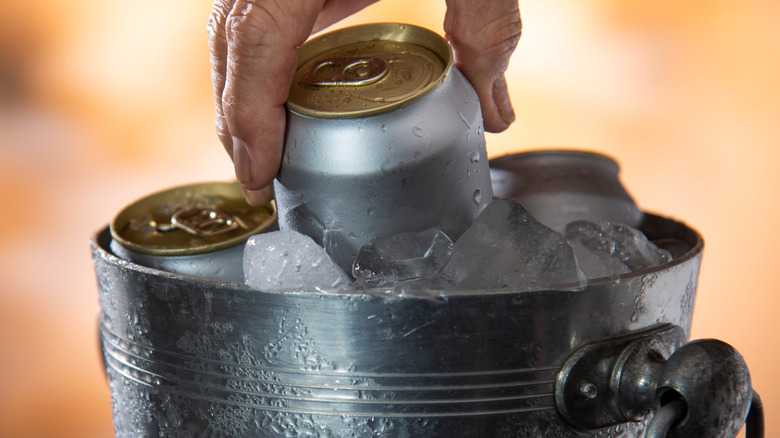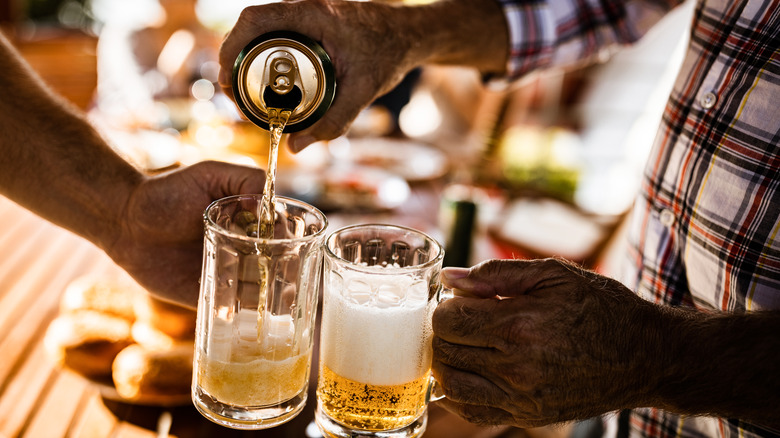How Long Does Canned Beer Usually Stay Good For?
Whether you're enjoying a gathering with friends or treating yourself on a Friday after a long work week, there's nothing wrong with responsibly cracking open a cold one. Beer is often the drink of choice at social gatherings, so if you're the one hosting, you might feel compelled to stock up — which can sometimes leave you with more than you really need. So, how long does canned beer actually last? Its shelf life depends on how you look at it.
Technically, beer never expires to the point where it's dangerous to consume, so you're mostly talking about freshness and quality when deciding when beer goes bad. Its flavor and carbonation will remain quality for up to three years if it's stored unopened in the refrigerator. Once you open it, though, that quality deteriorates that same day. If you keep it in the pantry where it's away from direct light and kept at room temperature, it will still be good for as long as nine months past its expiration date.
Canned beer doesn't expire, but it does lose its quality
If you've ever left an opened beer can in the refrigerator only to return to it later, you quickly notice it tastes flat and flavorless. That's because the moment a beer can is cracked open, the carbon dioxide within it is released. This carbon dioxide develops during the fermentation process, so by letting it escape, the beer's flavor and carbonation deteriorate. You should drink an opened beer can within no more than one day for maximum flavor, regardless of whether it's refrigerated or not.
Storing beer in the refrigerator will give it longer quality and freshness than in the pantry, but for the most part, you never have to worry about expired beer making you sick. "Because of the alcohol content in beer, and the presence of hops — which have antimicrobial characteristics — there's not really any pathogen growth," Neil Witte, a master cicerone (the highest level of beer expert), told Eating Well. "The worst thing that's going to happen to beer when it gets old is that it's going to taste bad."
Different types of canned beers can have different shelf lives
From a quality standpoint, not all beers are created equal. While it remains true that they won't become unsafe to drink, a beer with less alcohol will lose its quality faster than a heavier beer. Something like a stout might easily last nine months past its expiration date when stored at room temperature, but a pale ale might only last for half of that time. The general rule of thumb is that darker, hop-heavier beers will maintain their quality for longer than light, low-alcohol beers. Still, it's hard to give an exact termination date in terms of quality because so many beers have different brewing processes, hop levels, and other factors.
Non-alcoholic beers have been rising in popularity, but it's important to note that this beer has a much shorter shelf life because it lacks the alcohol content that helps standard beer keep for so long. Non-alcoholic beer is still made with hops and a small amount of alcohol (less than 0.5% ABV), so it won't necessarily make you sick but should be consumed within as little as three months, depending on the brand and type.


